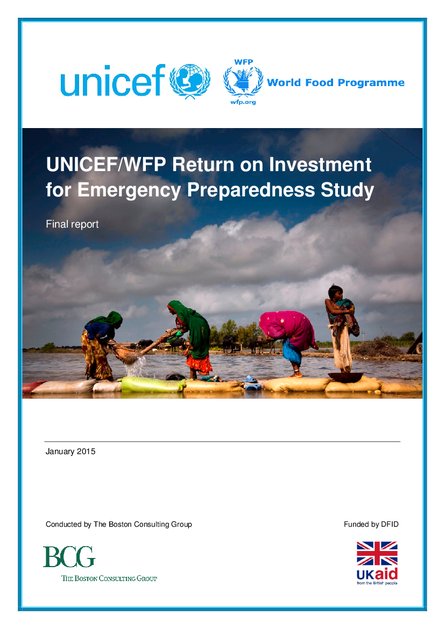
Although humanitarian actors have long emphasized the benefits of emergency preparedness in high-risk humanitarian contexts, little evidence has been collected to date to demonstrate the impact of early preparedness investments on eventual humanitarian response. This study is one of the first research initiatives to quantify the cost and time benefits of a large and diversified investment “portfolio” of emergency preparedness interventions undertaken by UNICEF and WFP in 2014, with support from the United Kingdom’s Department for International Development (DFID). It builds the evidence-base for a return on investment (ROI) for preparedness to: • identify opportunities to reduce costs and increase the speed of humanitarian response; • assess planned and existing preparedness investments in terms of potential cost savings and response time; and • compare different preparedness interventions along these two dimensions.
Contextualized analysis is necessary for evaluating the relative merits of investments in different situations. As the model developed through this study can be used for all type of risks and type of activities, it could function more and more as a standard tool in reporting and advocating for emergency preparedness. The research team hopes that in using the model delivered with this project, humanitarian actors will be empowered to make informed long term investment choices for the greatest benefit of aid recipients and be held more accountable to deliver on the investment promises.